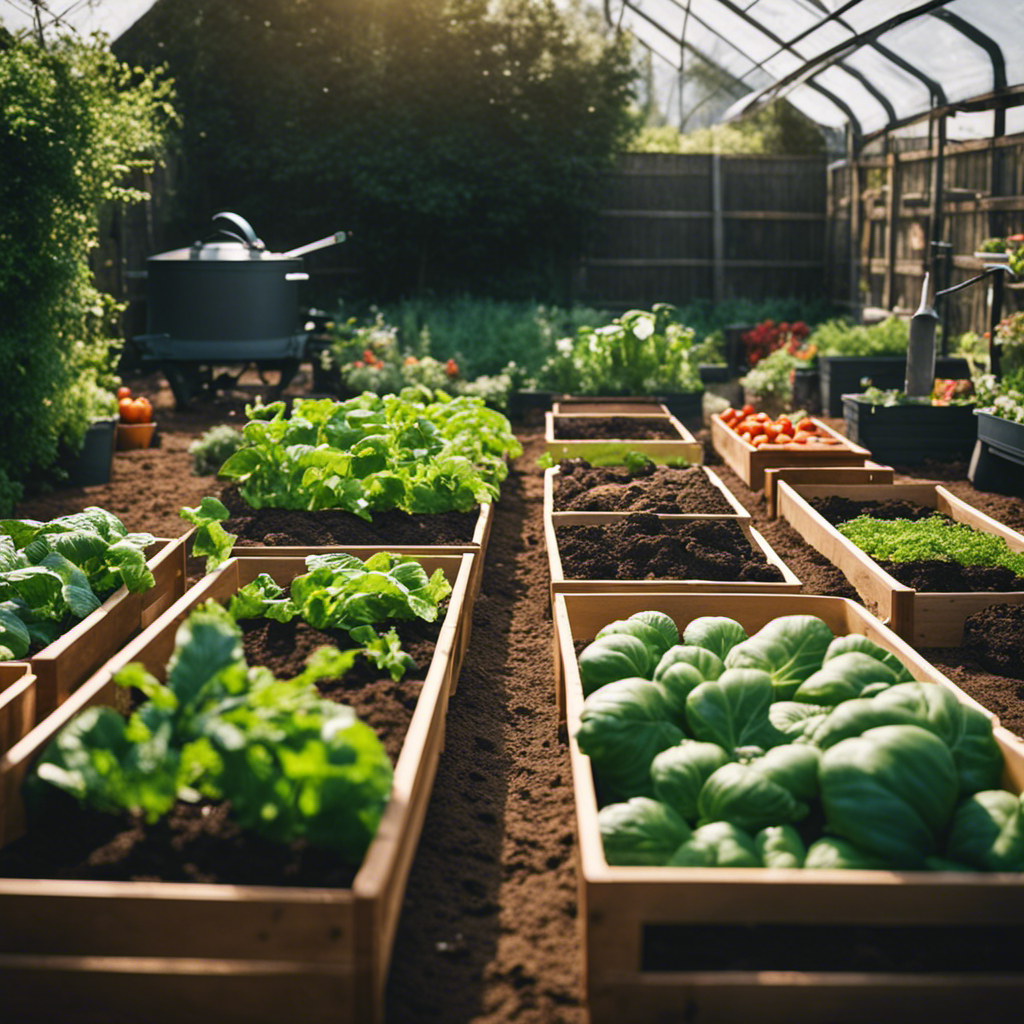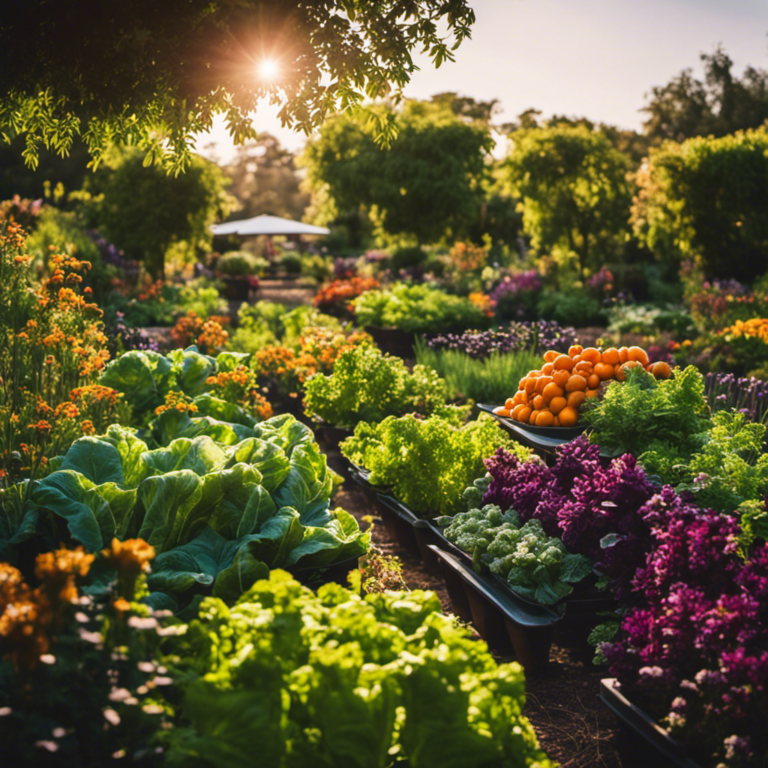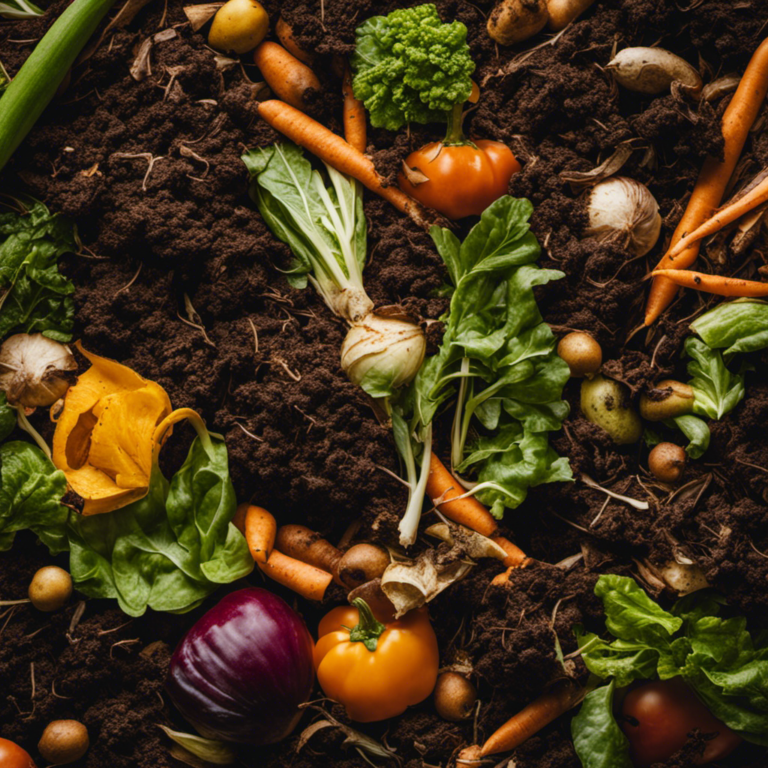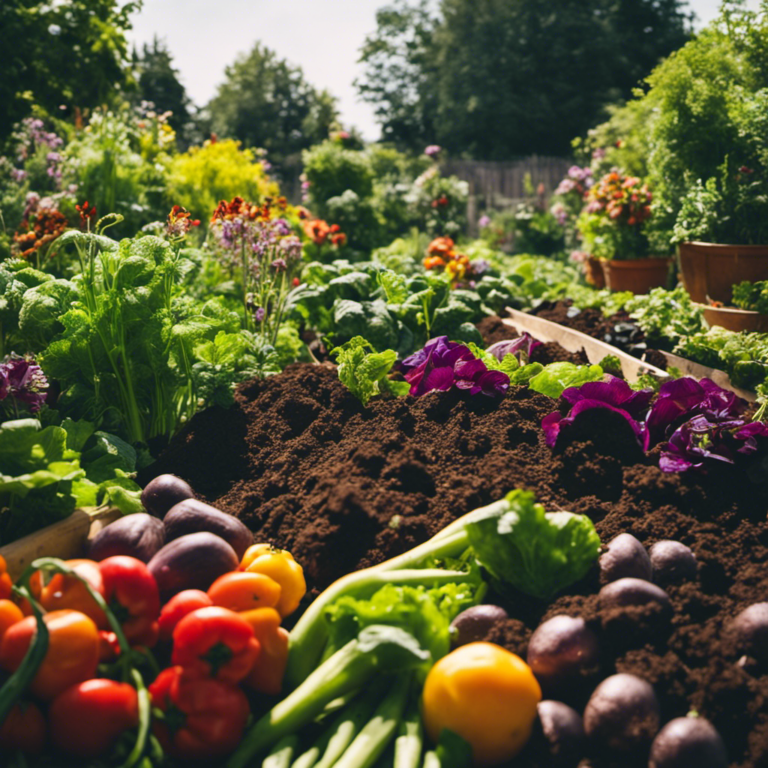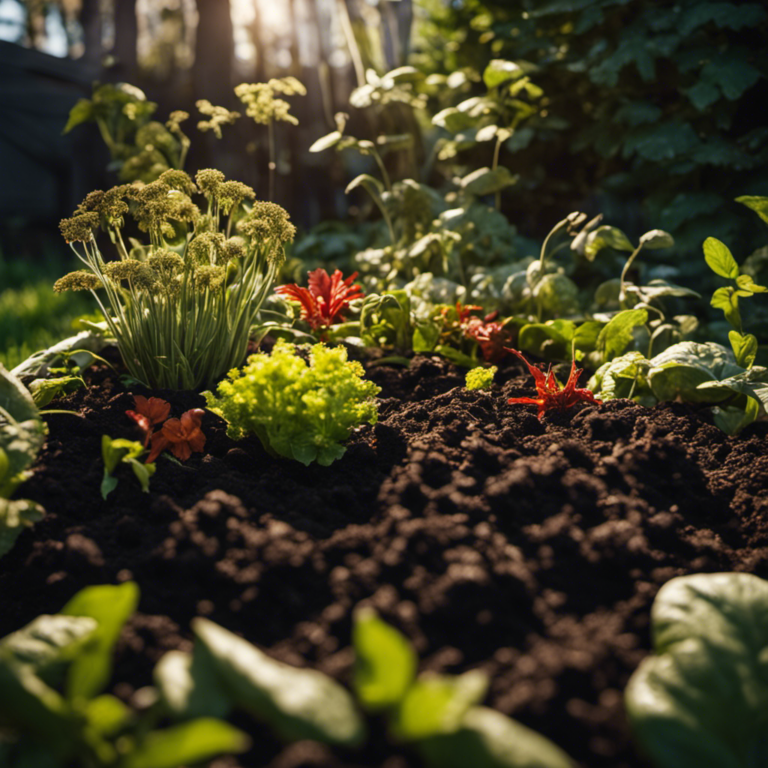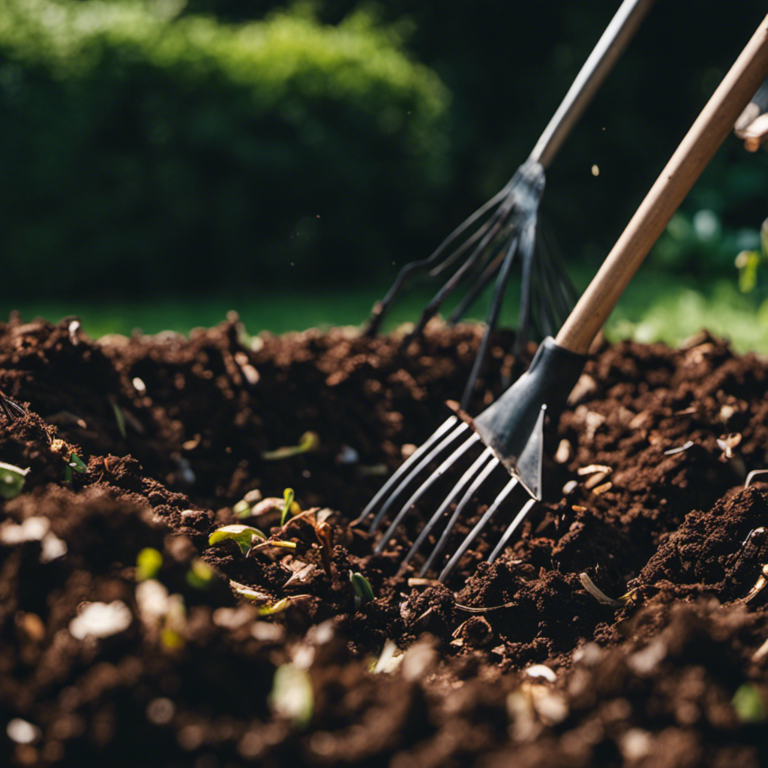Did you know that almost 40% of food waste in the United States is made up of organic vegetables?
If you’re someone who wants to make a positive impact on the environment, you might be interested in learning about efficient composting systems for organic veggies.
In this article, we will explore different methods that can help you reduce waste and contribute to a healthier planet. We’ll discuss traditional composting, vermicomposting with worms, bokashi fermentation, aerobic composting, and in-vessel composting.
Join me on this journey as we discover practical and effective ways to handle organic vegetable waste. Together, we can make a difference and create a more sustainable future.
Key Takeaways
Different composting systems are available for organic veggies, offering efficient ways to transform organic waste into nutrient-rich compost. These systems include traditional composting methods, vermicomposting with worms, the bokashi fermentation technique, aerobic composting systems, and in-vessel composting options. By exploring these different methods, individuals can find the most suitable composting system to meet their specific needs. This not only helps reduce waste but also promotes environmentally friendly gardening practices, contributing to a more sustainable approach to gardening.
Traditional Composting Methods
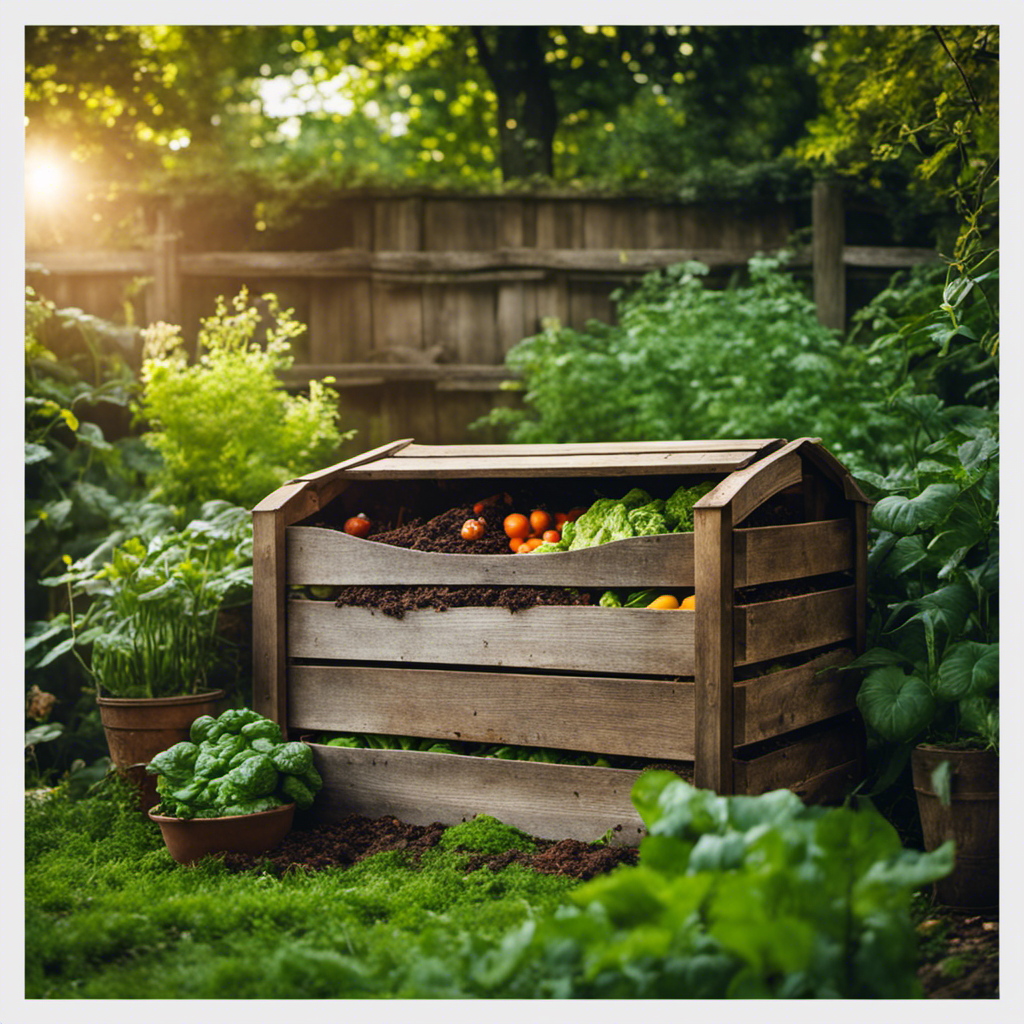
One effective method of composting that has been used for centuries is the 3-bin system. This traditional composting technique has a positive impact on the environment by reducing organic waste in landfills and creating nutrient-rich compost for organic vegetable gardens.
There are numerous benefits to using traditional composting methods for organic vegetable gardens. Firstly, it improves soil quality by adding organic matter, which enhances soil structure, water retention, and nutrient availability. As a result, plants grow healthier with stronger root systems and increased resistance to pests and diseases.
Secondly, traditional composting methods reduce the need for synthetic fertilizers, pesticides, and herbicides. By incorporating compost into the soil, a balanced and natural source of nutrients is provided, resulting in healthier and more flavorful vegetables.
Furthermore, traditional composting promotes sustainability by closing the loop of organic matter. Instead of sending kitchen scraps and yard waste to the landfill, they can be transformed into valuable compost that nourishes plants and reduces carbon footprint.
Vermicomposting With Worms
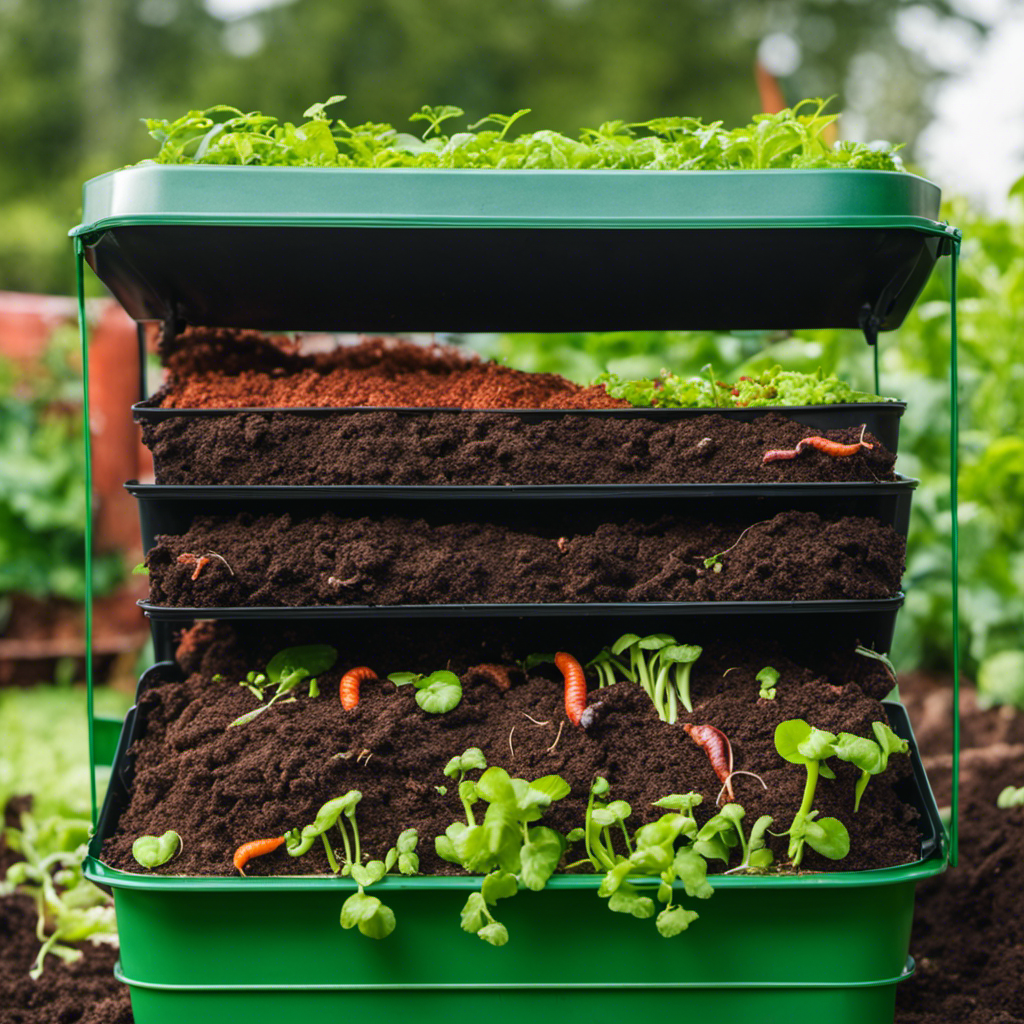
Let’s explore the process of vermicomposting with worms, a highly effective method to improve the composting of organic vegetables. Vermicomposting involves using red wigglers, a type of worm, to break down organic waste and create nutrient-rich worm castings, also known as worm manure. These castings offer numerous benefits for gardens and farms.
Here are some advantages of vermicomposting:
-
Improves soil structure: Vermicomposting is an excellent way to enhance the quality of your soil. The worm castings contain beneficial microorganisms that help aerate the soil and improve its ability to retain water.
-
Enhances nutrient availability: Worm castings are rich in essential nutrients like nitrogen, phosphorus, and potassium. These nutrients are readily available to plants, promoting their growth and overall health.
-
Suppresses plant diseases: The worm castings contain beneficial bacteria and fungi that can combat harmful pathogens, protecting your plants from infections and diseases.
-
Increases plant growth and yield: The nutrients present in worm castings support healthy root development, resulting in stronger and more productive plants.
Incorporating vermicomposting into your composting system can greatly benefit your garden or farm. It improves soil structure, enhances nutrient availability, suppresses plant diseases, and boosts plant growth and yield. By utilizing this method, you can maximize the potential of your organic vegetable composting.
Bokashi Fermentation Technique
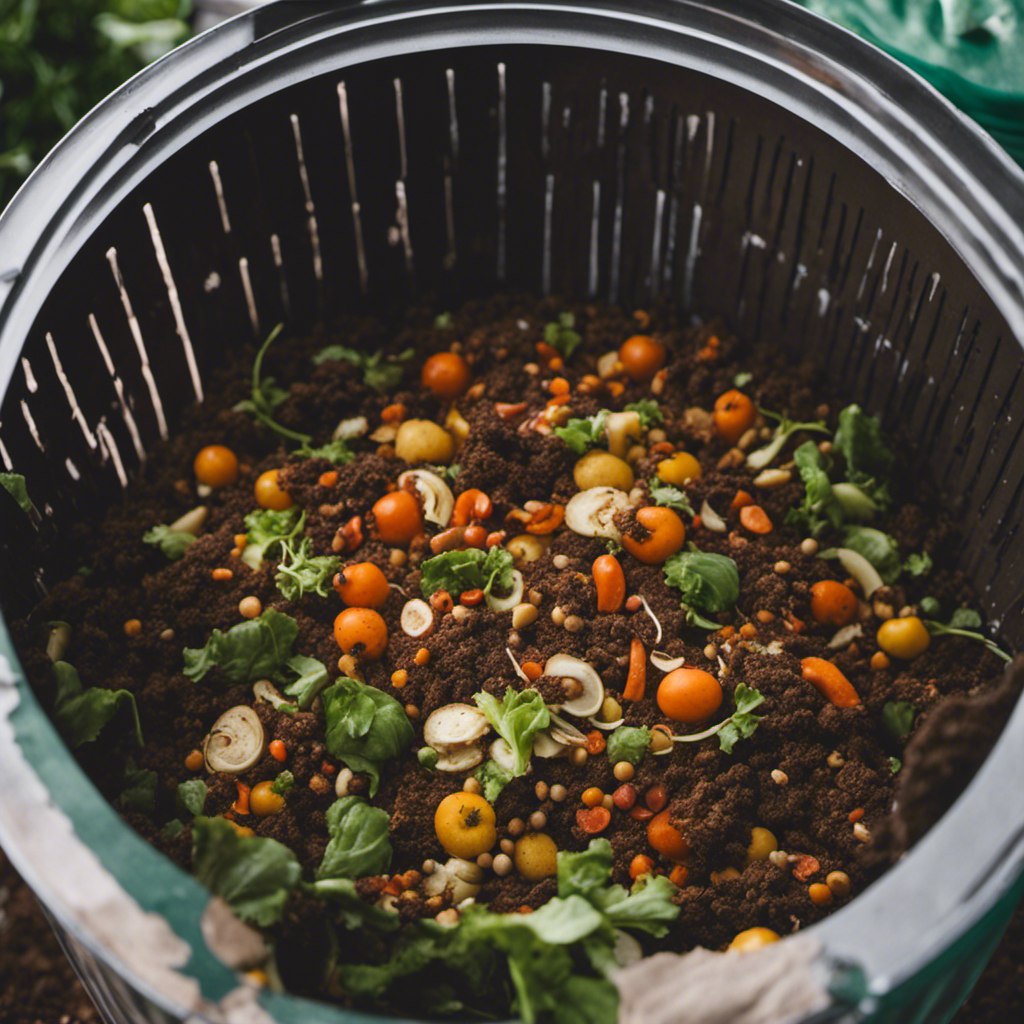
I often use the Bokashi fermentation technique in my composting system for organic vegetables. It’s a simple and effective method that offers several benefits.
Here are three reasons why you should consider incorporating the Bokashi fermentation technique into your composting routine:
-
Speed and Efficiency: Unlike traditional composting methods that can take months, Bokashi fermentation is a fast process that only takes a few weeks. The beneficial microorganisms in the Bokashi mix help break down the organic matter quickly, resulting in nutrient-rich compost.
-
Odor Control: One of the major advantages of Bokashi fermentation is its ability to eliminate foul smells commonly associated with composting. The fermentation process creates an anaerobic environment that prevents the release of unpleasant odors, making it suitable for indoor composting or small spaces.
-
Versatility and DIY-friendly: Bokashi composting can be done in small containers, making it ideal for apartment dwellers or those with limited outdoor space. You can easily create your own Bokashi mix using kitchen waste like fruit and vegetable scraps, coffee grounds, and even meat and dairy products.
Aerobic Composting Systems
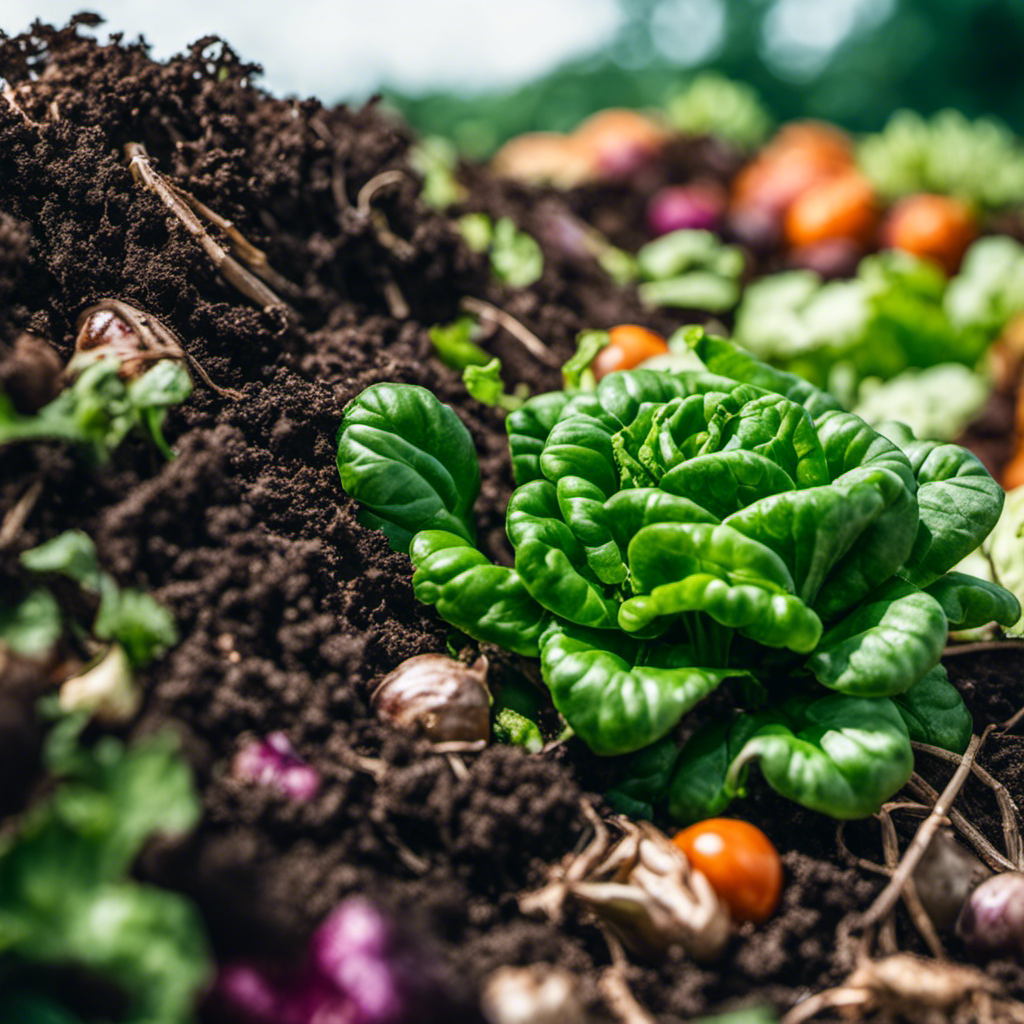
Aerobic composting systems improve the decomposition process by incorporating oxygen into the organic matter. This method, also known as aerated composting, is widely used to efficiently compost organic veggies due to its numerous benefits.
One major advantage of aerobic composting is its faster decomposition rate. By introducing oxygen into the compost pile, the microorganisms responsible for breaking down the organic matter can work more efficiently. This results in a shorter composting time compared to other methods.
Another benefit of aerobic composting is the reduction of unpleasant odors. The presence of oxygen creates an environment that promotes the growth of aerobic bacteria, which have a less strong smell compared to anaerobic bacteria. This makes aerobic composting a more pleasant experience for those involved in the composting process.
Additionally, aerobic composting systems produce high-quality compost. The oxygen allows for the breakdown of organic matter into stable humus, which is rich in nutrients and beneficial microorganisms. This nutrient-rich compost can then be used to improve soil fertility and enhance plant growth.
In-vessel Composting Options
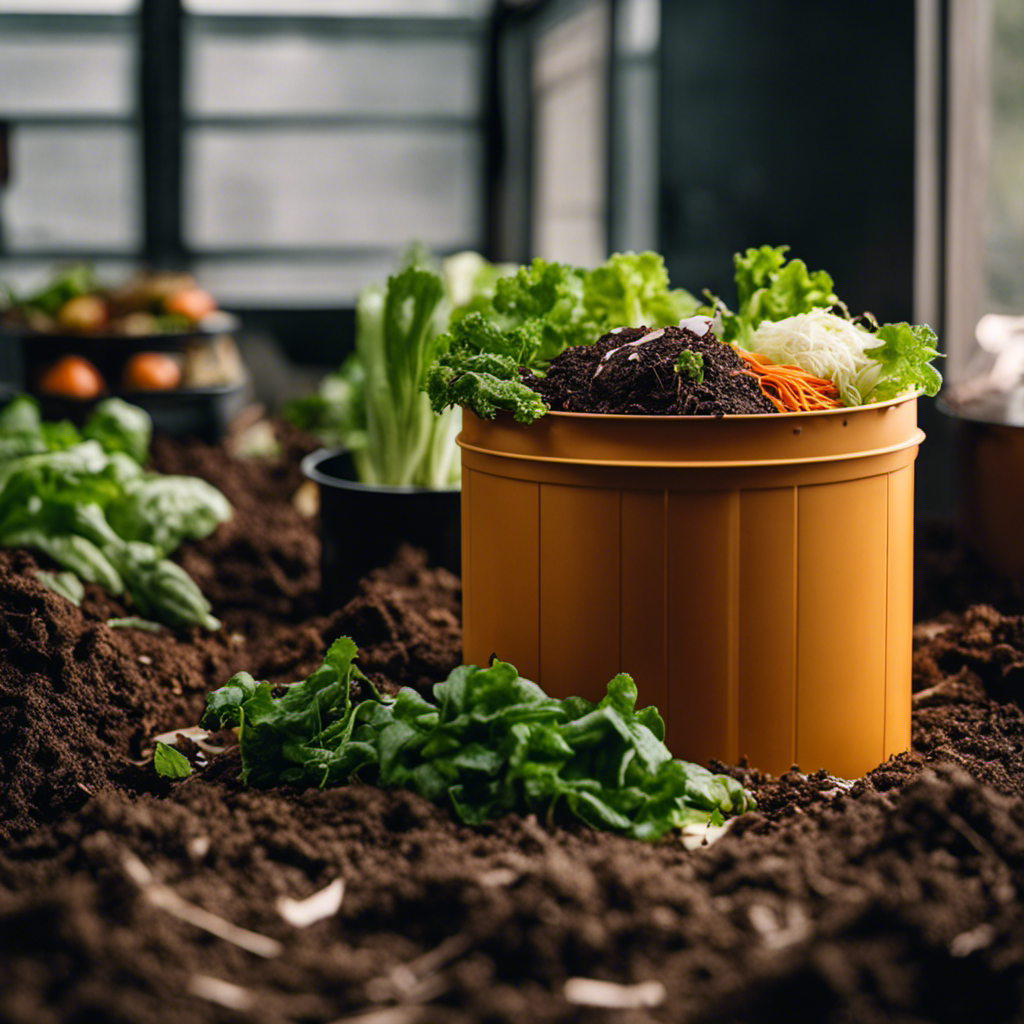
Moving on to the next composting option, let’s discuss in-vessel composting systems for organic vegetables. In-vessel composting involves using containers or vessels to manage the composting process. Here are three benefits of in-vessel composting:
-
Enhanced control: In-vessel composting allows for greater control over the composting process. The containers provide a controlled environment for the decomposition of organic waste, ensuring optimal conditions for microbial activity and decomposition. This control helps speed up the composting process and produce high-quality compost.
-
Odor management: One major advantage of in-vessel composting is its ability to contain odors. The closed containers prevent unpleasant smells from escaping, making it a more suitable option for composting in urban or residential areas. This is particularly important when composting organic vegetables, as they can produce strong odors during decomposition.
-
Space efficiency: In-vessel composting systems are designed to be compact and space-efficient. They can be easily installed in small or limited spaces, making them suitable for urban environments where space is limited. This allows individuals or communities to compost their organic vegetables even in areas with limited outdoor space.
In terms of the in-vessel composting process, it typically involves loading the organic waste into the containers, monitoring and adjusting the temperature and moisture levels, and periodically turning or agitating the materials to ensure proper aeration. The compost is then ready for use once it has reached a stable, dark, and crumbly consistency.
Conclusion
Various efficient composting systems are available for organic veggies. These include traditional composting methods, vermicomposting with worms, the bokashi fermentation technique, aerobic composting systems, and in-vessel composting options.
These systems offer practical ways to transform organic waste into nutrient-rich compost, contributing to sustainable gardening practices. By exploring these different methods, individuals can find the most suitable composting system to meet their specific needs.
This not only helps reduce waste but also promotes environmentally friendly gardening practices.
